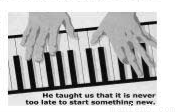题目内容
Cathy had quit her job when her son was born _______ she could stay home and raise her family.
A.now that B. as if C. only if D. so that
D
【解析】
试题分析:A.now that既然;B.as if好像;C.only if只要;D.so that以便。这里是so that引导的目的状语从句。句意:当Cathy的儿子出生的时候,她就放弃了自己的工作,以便呆在家里照顾家人。根据句意故选D。
考点:考查连词。

练习册系列答案
相关题目
